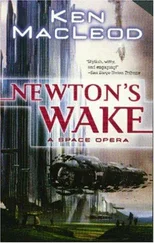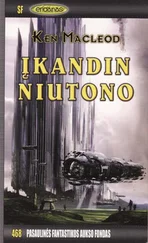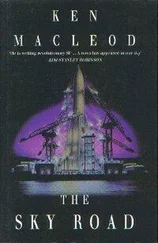Darvin strode unshod, wrapped only in his wings and warmed by the memory of the past night with Kwarive. The warmth was emotional; as a matter of regrettable fact, thinking about the night sent blood coursing through his membranes; wasting its heat on the chill air. He didn’t mind, but he forced his thoughts to his work. Lecturing and demonstrating to students paid for some of his research. His stipend, and the rest of his research expenses, were covered, like those of most scholars, by obscure trickles from Seloh’s Bounty. As in most recent years, the Bounty had been pinched at Treasury level by the demands of the armed services, Seloh’s Might. Seloh herself — the Seloh, twenty-seventh of that name — had made pointed reference in her annual autumnal speech from the Height about the need for stringency in scientific and educational expenditure. Many of Darvin’s colleagues had hastened to rephrase their petitions for bounty in martial terms, with sometimes ludicrous results. Kwarive herself had told him, laughing, of how an entire anatomy course had been justified as research into the effects of lethal or anaesthetic gases. What military applications this could have, gods only knew: the use of gas in warfare was engineering-tales stuff and nonsense, but the air force, Seloh’s Flight, had accepted it. Orro’s aeronautical experiments had been too hopeless even for such a brazen camouflage, but his mathematical studies, to his surprise, obtained without demur a grant directly from not the Might, but the intelligence agency, Seloh’s Sight — alien and suspect though the Gevorkian was. Perhaps, he’d muttered, the Sight wanted to keep an eye on him. He had taken the money and at once used it to pay his debts to certain mechanics and artisans.
Which meant, Darvin guessed, that it had in turn gone straight into putting blood in the mouths of hungry kits. It might as well have come straight from that portion of the Bounty earmarked for relief.
Darvin’s own research had found no such excuse, as it had found no planet. His and Orro’s paper on the mysterious moving obect and on the historical increase in the number of the Daughters had appeared on the physics wire, drawn a wingful of puzzled, point-missing queries, and sunk without trace. It had not been a good summer, nor yet a good autumn, to press the point. The cheap prints buzzed with sensations: a moving star had been glimpsed, not by astronomers; Gevorkian airships had been spotted far inland, not by the Flight; reports of strange slow bolides flew in from here and there; thunderclaps had boomed from clear skies; a ship, its crew all dead of an unknown ghastly malady, had, not according to the navy, foundered on the Channel coast; merchants from Seloh and Gevork had brawled in some treaty port of the Southern Rule; and a prey calf with two heads had lived an outer-month.
The peril of being associated with such trash had left Orro and Darvin in seething silence.
Meanwhile, Darvin had his own research funding to worry about. He had spent two and a half years already on the blink comparator, and with nothing but the Little Bastards and the mysterious vanishing comet to show for it, he had little grounds for asking his senior to renew the grant, and small motive to. He had toyed with the thought of writing up his meagre results and abandoning the quest to some future junior astronomer with more patience and perhaps better instruments.
Too bedraggled and wearied by his damp walk to fly even the short hop to the astronomy storey, Darvin plodded up the unfamiliar staircase to the floor, and met Orro at the top. The Gevorkian returned a grim look to Darvin’s surprised greeting. Loitering behind Orro were two men, wings poised, arms folded, faces sharp and mouths closed. One of them detached himself from the wall and sauntered to where Orro stood in glum silence. From a pouch on his belt the stranger flashed a small bronze disc with an inset enamel eye. To present even an imitation of that sigil was a slashing offence; Darvin took it as seriously as Orro already had. “My office?” he said.
The Sight agent nodded. Darvin led the way. As he unlocked the door the keys rattled and jangled. He clenched his fist around them and stalked in. The second agent planted himself in front of the door as soon as it was closed; the first sat on the windowsill. Orro perched on the table, Darvin on his chair. An awkward party they made, distributed thus about the cluttered room.
“Well, officers, how can we help you?” asked Darvin.
The one on the windowsill gave his cheekbone a meditative rub with his wing wrist. “For you to say, I should think,” he said.
“I don’t understand.”
The Sight man looked around the room. “Did they pay you much?”
Darvin misunderstood. “I have my stipend, various Bounty grants, some teaching fees—”
“Not what I meant.”
The one at the door made a lurch. The other warned him back with a frown.
“Your friend here, now,” he went on, “he’s a Gevorkian. All quite understandable. But you, that’s the puzzle. Hasn’t Seloh given you enough? Hence the question.”
Darvin understood at last. “I haven’t the faintest idea what you’re talking about,” he said.
Another lurch from the door, another frown from the window. The fog swirled outside.
Orro clapped a hand to the top of his head. His ears went back. “Oh!” he said. “I remember now.”
He extended a leg to the floor, stood on it, swung the other from the table, and paced behind the blink comparator, as though its brassy bulk could afford him some protection. He looked from one agent to the other, his glance pausing only for a remorseful fraction of a second on Darvin. “I wrote to my friend Holder, in the Regnal Air Force, about our… ah… results,” he said.
“Which results?” asked Darvin.
Orro waved upward. “The comet and the green stars.”
“That’s all?”
“That’s all. He replied, and I discussed it further. Nothing else.”
Darvin let out a sigh of relief. He had been afraid Orro had noised abroad something about his aeronautics — which, futile though it was, might have made some unsleeping Eye prick up his ears.
“There you are, gentlemen,” he said. “No defence significance. A scientific enigma, that’s all, related to a former colleague across the water. My friend here hasn’t abused his position in the least.”
“What’s of defence significance,” said the Eye at the window, “and what’s an abuse of position, is not for you to judge. Nor me, come to that.” He combed an eyebrow tuft with a claw. “But you did sign the university charter, did you not?”
“Of course,” said Darvin.
“Correct me if I’m wrong, but that does include a clause or two about having due regard for the interests of the Reach?”
Darvin tried to remember a page or eight of small-print boilerplate. “If you say so.”
“I do say so, and rightly,” said the agent. He made a sad, sucking noise through his teeth. “And, in my layman’s opinion, some unknown object hurtling out of the outer darkness straight towards us might just possibly be of some moment to the weal of the Reach.”
Darvin felt like laughing with relief. “In that case, I’ve done my duty,” he said, “and so has Orro. We’ve published a full account of it.”
“That,” said the Eye, “is your problem.” He drummed his heel-claws on the wall, then slid down to stand again on the floor. “Published. You’ve no idea the trouble you’ve given us. If you’re feeling a bit put out that it didn’t get much of a response, don’t blame your colleagues. Except, maybe, for a certain lack of fortitude about having their arms twisted.”
“The Sight did that ?” said Darvin, outraged. “Suppressed discussion?”
Читать дальше












